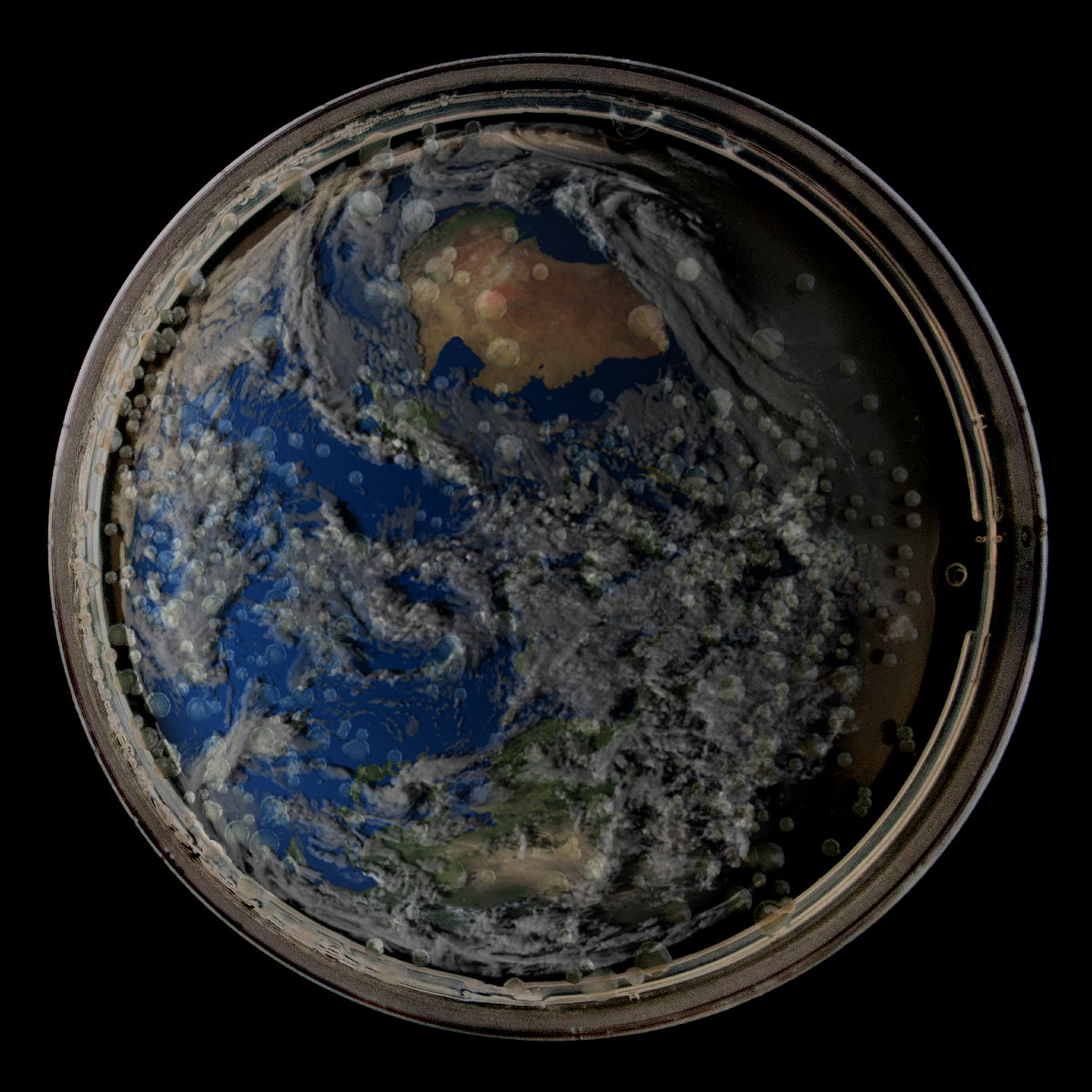Gaian Systems
The Planetary Cognition Lab

We initiated the Gaian Systems project years after first meeting Bruce (a.k.a. Bruno) Clarke at the Cosmopoetics symposium. David and Bruno kept up a correspondence for many years, eventually leading to the establishment of this project in 2019. It has resulted in several collaborations and installations, including The End of You, Holobiont: Life is Other, the Cybernetics Counterculture Intensive, and the book by the same name.
From gaian.systems:
Gaian Systems is a transdisciplinary research project to cultivate new forms and practices of planetary cognition. Our aim at Gaian Systems is to communicate humanity’s participation with and within Earth’s biotic and metabiotic processes.
Initiated in early 2019 by Dr. Bruce Clarke, then in residence as the Library of Congress Chair of Astrobiology, and Dr. David McConville and Dawn Danby of Spherical, we work with collaborators on curation, research, and creation.
Inspired by Aldo Leopold’s appeal at mid-twentieth century to “think like a mountain," Lynn Margulis' affirmation of a symbiotic planet, and the iconic photographs of Earth from space, we're exploring the central question:
What does it mean to think like a living planet?
For one, it means to stop thinking exclusively like an individual humanist subject. Cognitive processes grounded in organic sensoria and material flows emerge from the reticulated web of living beings and non-living affordances. Planetary cognition means sensing and responding in planetary context, in tune with that precious piece of the planet to which one can hold, by which one is held in place.
Cognition occurs both above and below the level of thought. And over and above every living system on Earth is that wider consortium of systemic processes we call Gaia, in which the geosphere and the biosphere couple and coordinate their operations. Within this matrix, this ambient cosmic residence, humanity and its built world also have their modes of being right alongside other forms of life and their larger geological workings.
We are currently exploring sensory-immersive and conceptual-speculative ways of grasping:
- our participation in planetary systems, through the lens of Gaia Theory
- our embeddedness in a living planet
- our part in enhancing the viability of the planetary superecosystem.
Cultivating planetary cognition entails experimenting with different ways to foster comprehensive and compelling appreciation for the entangled reciprocities and regenerative capacities of planetary processes. How can we most effectively reorient our view of Earth, away from a collection of exploitable resources and toward a systemic complex of dynamic and intertwined processes?


